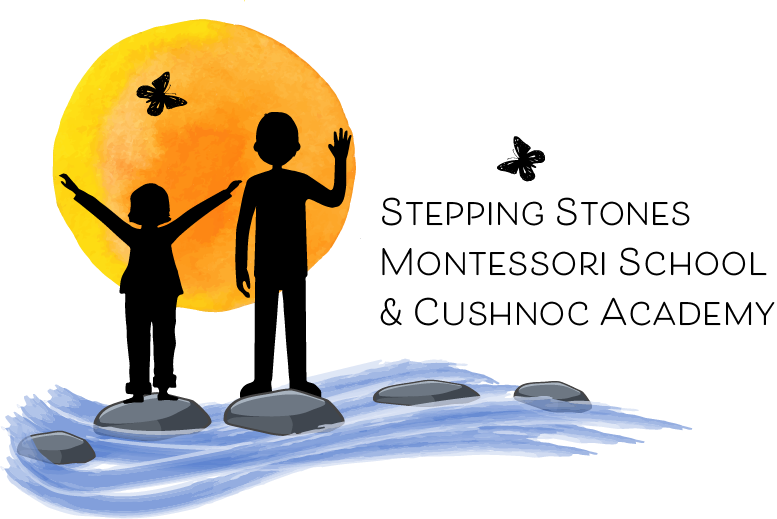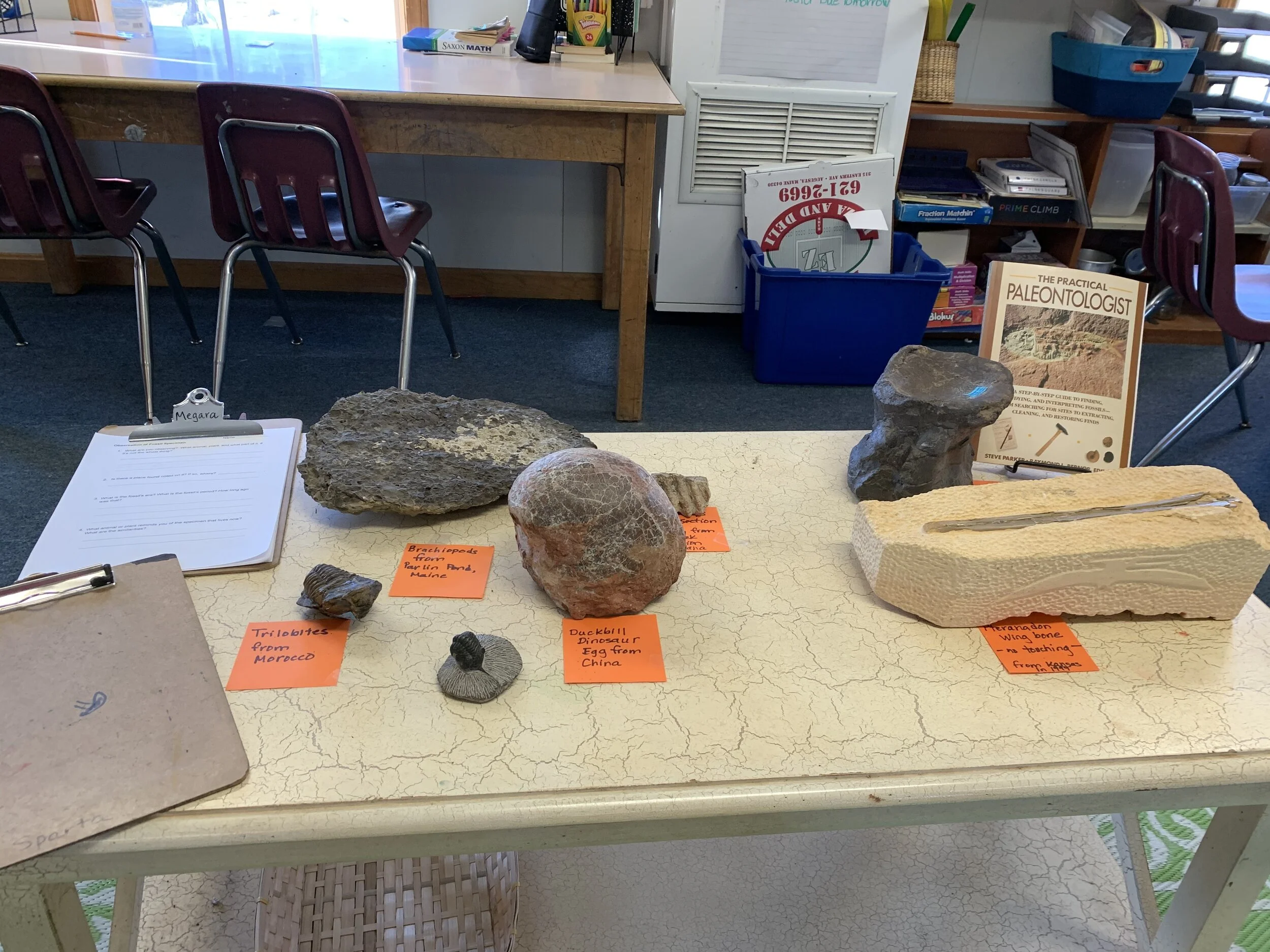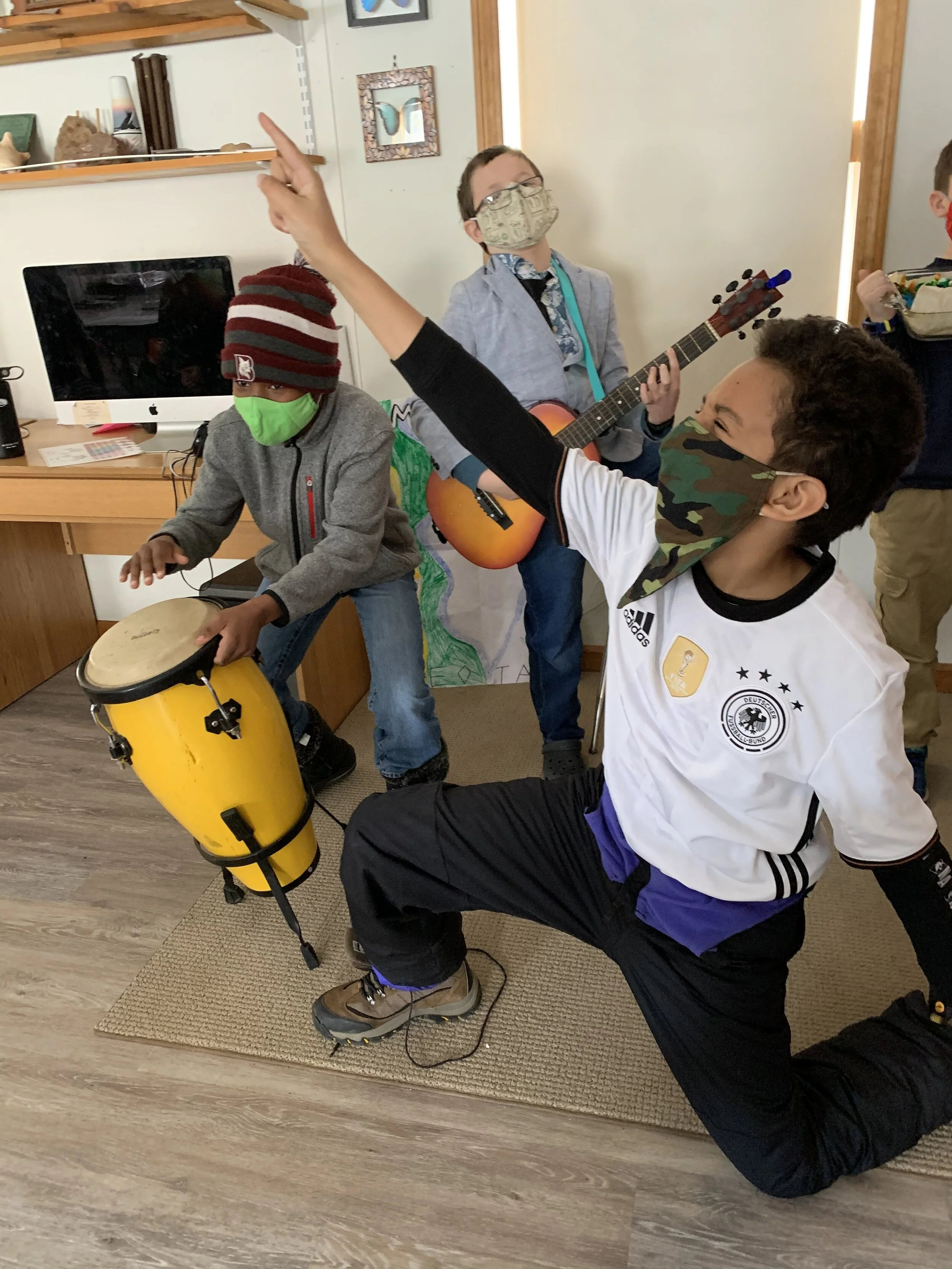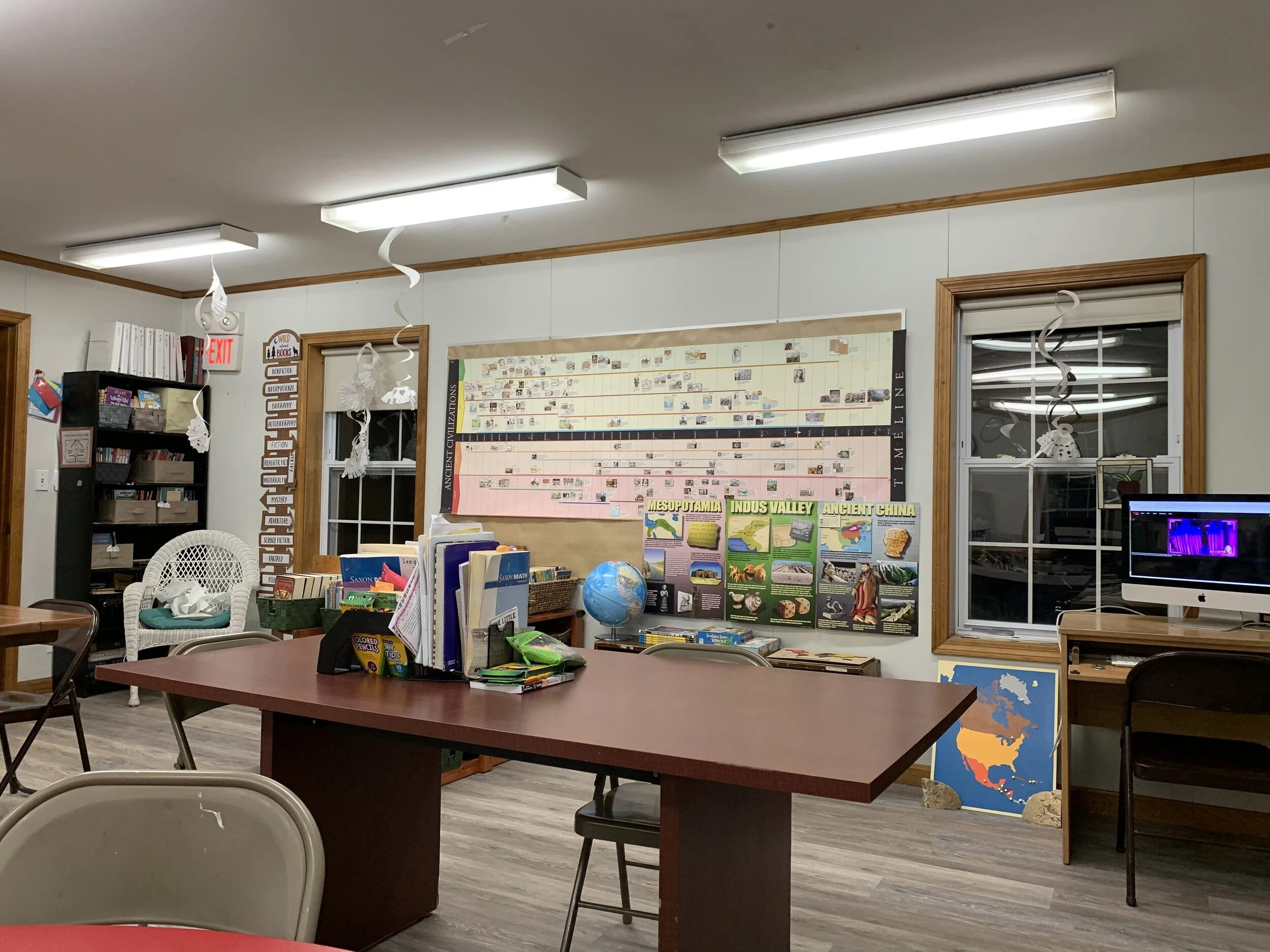Upper Elementary Program (grades 4-6)
A View of the Upper Elementary Classroom…
Our Upper Elementary classroom is a place where learning comes alive. History of the natural world over millions of years and the history of humankind are active inquiries. Rich with real fossils, artifacts, student role playing, and literature study, this classroom is described by its head teacher, Mike Gervais, as creative and spontaneous.
The Upper Elementary program, which began in 2005, provides students with challenging work in a supportive environment. Stepping Stones Montessori School’s Elementary Programs represent a middle road between the whole group instruction of traditional settings and homeschooling. Our Upper Elementary classroom has 15-20 students in grades 4-6. Our school has been recognized as an Approved Private School by the Maine State Department of Education.
Upper Elementary Curriculum Overview
The Upper Elementary program continues to offer individualized multiaged education with added requirements for quality of work and mastery of skills. During self-directed time each week, students strive to complete a “work contract” encompassing science, history, geography, and math topics. Weekly experiments, observations, vocabulary, and geography activities are always underway.
This program includes longer-term projects such as group history presentations, country brochure research reports, history and science vocabulary memorization, and more rigorous science experiments. Research skills are emphasized in most subject areas and all students complete an end-of-year independent long-term research project.
In social studies, there is an emphasis on human history during continent studies. For example, when studying Africa, these older students focus on ancient Egypt. Each year, the first trimester is devoted to a period of American history. Science themes include geology (e.g., types of rocks and their characteristics), chemistry (e.g., the table of the elements), biology (e.g., classification of animals), timelines of life and related fossils, astronomy studies, and more.
In language arts, students are involved in literature circles, studying literary elements using award-winning and classic novels. Students discuss characterization, the author’s writing style, points of view, and conflict/resolution. Students continue to have a daily Book Time for independent reading. In response to their independent reading, they write summaries and complete book projects. Students are also engaged in the writing process, sharing written work, obtaining teacher and peer feedback, editing, and making final drafts. Each student completes a self-paced grammar and spelling book, designated to that student’s achievement level.
In mathematics, a variety of hands-on and traditional activities promote learning of all math operations (+ - x /). Fraction work, geometry, and concepts of time, money, and measurement are emphasized as well. A self-paced practice curriculum called Saxon Mathematics is used to keep all skills current. Flexible group instruction is utilized to match the various instructional math levels of all the children. All students participate in solving multiple step word problems using steps and strategies. As our math program is individualized, students have the opportunity to pursue Algebra studies when ready, even if that is prior to 8th grade.
Additional Information on Upper Elementary
Children at the Upper Elementary level are usually more independent learners, especially if they have Montessori experience. At this level, the following expectations are added to our program:
1) Goal-setting for each subject and longer term projects
2) Self-assessment and teacher assessment of work using point-based product descriptors or rubrics
3) Where appropriate, self-paced work
4) Discussion of how to be a productive and helpful class citizen and good role model for younger children
Daily Program
The Upper Elementary school day runs from 8:30am to 3:00pm and generally includes Montessori work time, snack time, circle time, lunch and recess, book time, and designated time for math and language arts. “Specials” such as art and Spanish take place in the afternoon.
Special Programs for Elementary Students
Spanish classes twice per week
Art classes once per week
Music performances twice per year
Individual tri-fold Research Project for last six weeks of year
Suzuki violin program and after school drama club offered at additional fees
Optional competitions such as Spelling Bee, Geography Bee, and American Mathematics Competition; all students have access to preparation activities.
Resources for Students and Parents:
Upper Elementary Book Report Product Descriptor
Upper Elementary Book Diorama and Summary
Upper Elementary Staff (see Faculty and Staff page)
Mike Gervais, Head Teacher, Science and History
Amanda Clifford, Assistant Teacher and Grade 6 Teacher
Kaili Quinn, Co assistant teacher and Head Literacy Teacher

















